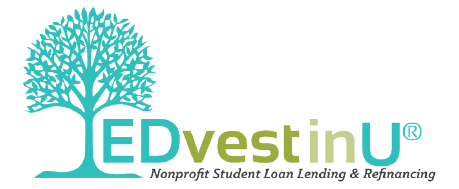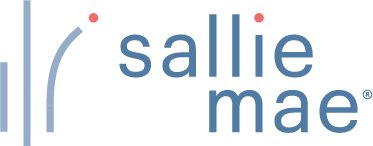How to Get Student Loans, Grants, and More for Adult Learners
Our goal is to give you the tools and confidence you need to improve your finances. Although we receive compensation from our partner lenders, whom we will always identify, all opinions are our own. Credible Operations, Inc. NMLS # 1681276, is referred to here as “Credible.”
Whether you’re going to school for the first time or going back to school for another degree, it can be stressful to figure out how to pay for college as a nontraditional student — typically students who are 24 or older and have dependents other than a spouse.
The good news is there are several options available to help older students pay for school, including student loans for adults and other aid alternatives.
If you need to pay for college as a nontraditional adult student, follow these steps:
- Start with the FAFSA
- Apply for scholarships and grants
- Take advantage of federal student loans
- Use private student loans to cover the rest
1. Start with the FAFSA
If you need money for school, your first step should be completing the Free Application for Federal Student Aid (FAFSA). Your school will use your FAFSA results to determine your eligibility for federal student aid — including federal grants, loans, and work-study programs.
The FAFSA asks questions about your finances and personal circumstances. Be prepared to share documentation that shows proof of income and financial need, such as:
- Tax returns
- Bank statements
- Investment statements
Learn More: 7 Student Loans for Community College
2. Apply for scholarships and grants
Unlike student loans, college scholarships and grants don’t have to be repaid — which makes them a great way to pay for school. There are a wide variety of scholarships and grants available from:
- Nonprofit organizations
- Local and national businesses
- Professional associations in assorted career fields
Your FAFSA results might also qualify you for school-based scholarships.
- Adult Skills Education Program: This program provides scholarships for adults attending technical or vocational schools.
- Adult Students in Scholastic Transition Scholarship: This scholarship is offered to select adults facing economic, social, or physical challenges and is worth $2,000 to $10,000.
- Beacon Scholarship for Rural America: A scholarship program where $1,000 is awarded twice a year to select high school students, college students, and adult learners who earn a low income and live in rural areas.
- Custody X Change Giving Fund: Single parents attending undergraduate programs can be awarded $500 to $1,000 through this program.
- Ford ReStarts Scholars Program: Students 25 and older from Oregon and Siskiyou County, California could have up to 90% of their unmet college costs covered through this program.
- Return2College Scholarship Program: This program offers $1,000 scholarships to students who plan to attend school in the next 12 months or who are already enrolled in a college or graduate program.
Check Out: How Long Does It Take to Get a Student Loan?
3. Take advantage of federal student loans
If you need to borrow for school, it’s usually a good idea to start with federal student loans. This is mainly because these loans come with federal benefits and protections, such as access to income-driven repayment plans and student loan forgiveness programs.
Here are the main types of federal student loans you might be eligible for:
- Direct Subsidized Loans are available to undergraduate students who demonstrate financial need. The government will pay for any interest that accrues on subsidized loans while you’re in school.
- Direct Unsubsidized Loans are available to undergraduate, graduate, and professional students regardless of financial need. Unlike with subsidized Loans, you’re responsible for paying all of the interest that accrues on unsubsidized loans.
- Direct PLUS Loans come in two types: Grad PLUS Loans for graduate or professional students and Parent PLUS Loans for parents who want to help pay for their child’s education costs. The interest rates on these loans are typically higher than the rates on subsidized and unsubsidized loans. You’ll also have to undergo a credit check.
| Loan type | Who qualifies? |
Interest rates (2021-22) |
Loan limits |
|---|---|---|---|
| Direct Subsidized Loans | Undergrad students with financial need | 3.73%* | $3,500 to $5,500 per year |
| Direct Unsubsidized Loans | Undergrad, graduate, and professional students | Undergrad: 3.73%*
Graduate and professional: 5.28%* |
Dependent undergrad: $5,500 to $7,500 per year ($31,000 total limit)
Independent undergrad: $9,500 to $12,500 per school year ($57,500 total limit) Graduate and professional: $20,500 per year |
| Direct PLUS Loans | Parents, graduate students, and professional students | 6.28%* | Cost of attendance minus any other financial aid received |
| *Federal student loan rates for the 2021-22 academic school year. | |||
Learn More: Student Loan Limits: How Much in Student Loans You Can Get
4. Use private student loans to cover the rest
After you’ve exhausted your scholarship, grant, and federal student loan options, private student loans could help fill any financial gaps left over. These loans are offered by private lenders, such as online lenders as well as traditional banks and credit unions.
While private student loans don’t come with federal protections, they do provide some benefits of their own, such as:
- Higher loan amounts: You might be able to borrow up to your school’s cost of attendance, depending on the lender.
- No application deadlines: Unlike federal student loans that require you to submit the FAFSA by a certain date, private student loans can be applied for at any time.
If you decide to take out a private student loan, be sure to consider as many lenders as possible to find the right loan for you. Credible makes this easy — you can compare your prequalified rates from our partner lenders in the table below in two minutes.
| Lender | Fixed Rates From (APR) | Variable Rates From (APR) | Loan amounts | Loan terms (years) |
|---|---|---|---|---|
 |
3.19%+ | 1.83%+ | $2,001 to $200,000 | 7 to 20 |
|
||||
 |
3.23%+1 | 1.03%+1 | $1,000 to $350,000 (depending on degree) | 5, 10, 15 |
|
||||
 |
2.99%+2,3 | 0.99%+2,3 | $1,000 up to 100% of the school-certified cost of attendance | 5, 8, 10, 15 |
|
||||
 |
3.75%+ | 1.08%+ | $1,000 to $99,999 annually ($180,000 aggregate limit) |
7, 10, 15 |
|
||||
 |
3.00%+7 | 2.17%+7 | $1,000 to $200,000 | 7, 10, 15 |
|
||||
 |
3.83%+8 | 1.56%+8 | $1,001 up to 100% of school certified cost of attendance | 5, 10, 15 |
|
||||
 |
3.75%+ | N/A | $1,500 up to school’s certified cost of attendance less aid | 15 |
|
||||
 |
3.50%+ | 1.13%+ | Up to 100% of the school-certified cost of attendance | 15 |
|
||||
| Compare private student loan rates without affecting your credit score. 100% free!Compare Private Loans Now |
||||
Check Out: Federal vs. Private Student Loans: 5 Differences
How to pay for college as an adult with bad credit
There are several potential ways to pay for college if you have bad credit — usually considered to be a credit score below 700. Here are a few options to consider:
Use scholarships and grants
Scholarships and grants are generally awarded based on merit or financial need. This means you can apply for them regardless of your credit history. There’s also no limit to how many scholarships and grants you can get, so it’s a good idea to apply for as many as you can.
Check Out: Fixed or Variable Student Loan: Which is Right for You?
Take out federal student loans
Direct Subsidized and Unsubsidized Loans don’t require a credit check. This means you could still be eligible for them even if you have poor credit so long as you meet their eligibility criteria.
Additionally, while you have to undergo a credit check to apply for a Direct PLUS Loan, you don’t have to meet a minimum credit score requirement to qualify. Instead, you can’t have an adverse credit history — meaning you must not have any foreclosures, bankruptcies, or other negative items listed in your credit report for the past five years.
Learn More: How to Get a Student Loan With No Credit Check
Apply for a private student loan with a cosigner
You’ll generally need good to excellent credit to qualify for a private student loan. There are also several lenders that offer student loans for bad credit — however, these loans typically come with higher interest rates compared to good credit loans.
If you’re struggling to get approved, consider applying with a creditworthy cosigner to improve your chances. Even if you don’t need a cosigner to qualify, having one could get you a lower interest rate than you’d get on your own.
Keep in mind that this means your cosigner will be on the hook for the loan if you can’t make your payments.
Check Out: Taking Out Student Loans Without a Cosigner
Other ways to pay for college as an adult
Here are a couple of additional options that could help you pay for school:
529 education savings plans
If you’re planning to go to school a few months or years from now, you could consider stashing away money in a 529 plan — a type of college savings account that offers tax breaks if you use the funds to cover qualifying school-related expenses.
While these accounts are often opened by parents looking to cover their child’s education costs, you also have the option to open a 529 account for yourself.
Unlike a regular savings account, a 529 plan allows you to invest the funds into mutual funds, exchange-traded funds, or individual stocks — depending on the plan. Additionally, some states provide tax deductions for contributions you make to a 529 plan.
Learn More: Best Private Student Loans – Objectively Reviewed
Employer benefits
Many employers offer tuition assistance or reimbursement programs that help their employees pay for college. These programs provide tax breaks for employers while also improving employee retention and skills as well as reducing recruitment expenses.
In many cases, you’ll be expected to work for a company for a certain amount of time before you can take advantage of a tuition program. Be sure to reach out to your human resources office to see if a program is available and how to apply.
Check Out: Private Student Loans and COVID-19: What You Need to Know
What student loans can pay for
Student loans can be used to cover almost any education-related expense, including:
- Tuition
- Fees
- Room and board
- Meals
- Transportation
- Books and equipment
However, while student loans can be used for many expenses, there are limits to keep in mind. For example, you shouldn’t use your student loan funds to pay for:
- A new car
- Vacations or travel
- Entertainment
- Other debt
Learn More: How to Use Student Loans for College Living Expenses
Frequently asked questions about student loans for adults
Here are the answers to a few commonly asked questions regarding student loans for adults:
Is there an age limit for receiving federal student aid?
No, there’s no age limit for receiving federal student aid. To be eligible for federal aid, you must have demonstrable financial need and must be enrolled at least half time at a school that participates in the federal financial aid program. You’ll also need to fill out the FAFSA.
Check Out: Best Graduate Student Loans
Is there financial aid specifically for single parents with children?
No, there isn’t a specific type of federal aid for single parents. However, you might qualify for federal aid based on your financial need — for example, if you’re an undergraduate student with exceptional financial need, you might be eligible for a Pell Grant.
Also remember that there are private scholarships and grants available for people from many backgrounds — including some designed for single parents with children.
Learn More: How to Get Into College With a GED
Is there an age limit for taking out a student loan?
No, there’s no age limit for taking out a student loan. But keep in mind that some loans can only be used by certain types of students.
For example, Direct Subsidized Loans are only available to undergraduate students with financial need while Direct Unsubsidized Loans can be used for undergraduate or graduate studies regardless of financial need.
Check Out: Student Loans for Part-Time Learners
What is the income limit for the FAFSA in 2021?
There’s no income limit for the FAFSA. Instead, both your income and family size are taken into account to determine what aid you might qualify for.
If you decide to take out a private student loan, remember to consider as many lenders as you can to find the right loan for you. Credible makes this easy: You can compare your prequalified rates from multiple lenders in two minutes — without affecting your credit score.
See Your Rates
Checking rates will not affect your credit




